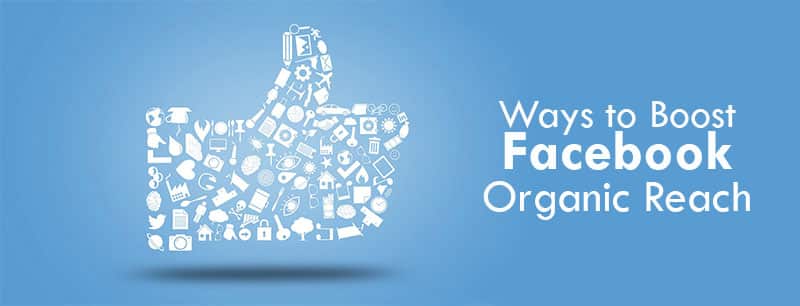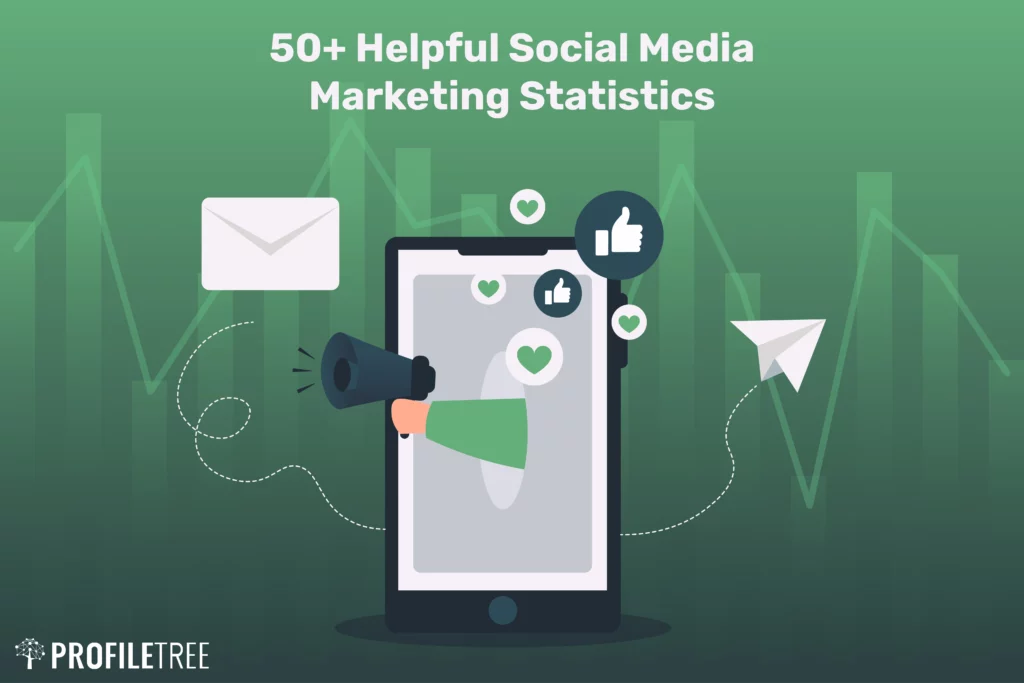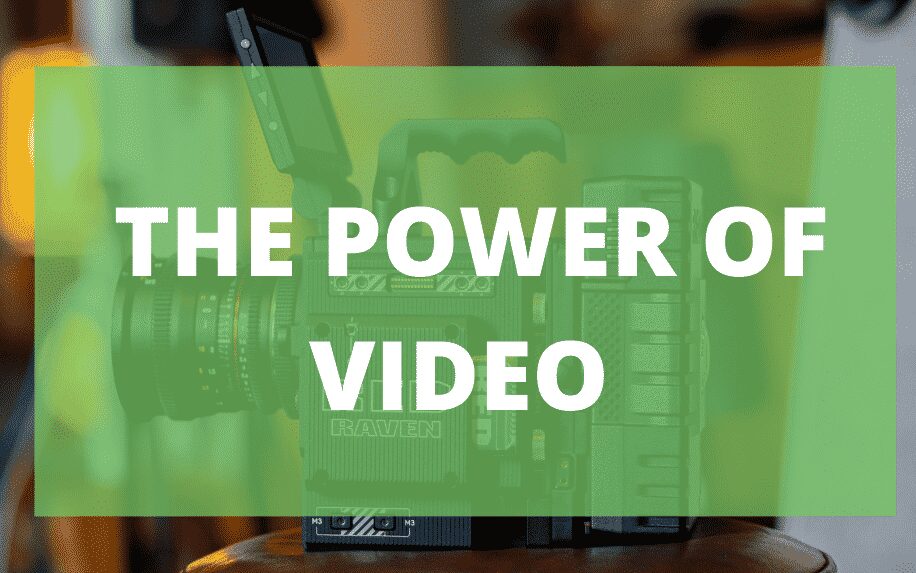
Facebook organic reach in 2023 takes strategy and consistently posts the right content types. With Facebook’s algorithm changes over the past few years, brand pages have seen significant declines in organic reach, now averaging below 5%. This makes it challenging to get content shown to your target audience without paid promotion.
The key is optimizing your content approach to produce engaging posts that spark interaction. Certain formats like video, carousels, and live broadcasts tend to capture attention and outperform static status updates. You also need to encourage sharing and word-of-mouth promotion to extend reach.
This guide will cover the latest tactics to boost Facebook’s organic reach this year and get your content performing better in the feed. Follow the tips to create a strategic content plan that leverages data-backed best practices. With the right focus, your brand can still gain impressive organic visibility on the world’s largest social media platform.
For this “How to Guide,” we relied on the experts. We surveyed the top experts about “organic” reach on Facebook to see what they had to say about Facebook marketing. In the end, we added some of our ideas, which we found most helpful.
Some of our ideas may be counter-intuitive, even a bit surprising. They may even challenge the common sense of opinions about the value of organic marketing on Facebook. Keep an open mind, and be ready to try new things to find your success.

Understand what the “experts” say about increasing the organic reach on Facebook and then see how understanding these concepts may affect an organization’s marketing strategy.
Getting Facebook content in front of your target audience has become increasingly challenging. Recent data shows Facebook’s organic reach declined another 10% in 2022, now below 5% on average. At the same time, Facebook algorithm changes consistently prioritize posts from friends and family over brand pages.
This makes it essential to have an effective organic content strategy if you want your Facebook posts to stand out in the feed. When done right, high-quality and optimized content can still gain impressive reach and engagement.
This guide covers proven tactics to improve Facebook’s organic reach in 2023 and get your content in front of more of the right people.
ALSO SEE: How To Basics of Online Marketing
Table of Contents
Facebook Organic Reach: The Basics
“Organic” reach means simply not paying for the activity. If the content is good or the Facebook post is interesting enough, it gets plenty of attention. Facebook likes are off the charts. This is the goal for organic reach on Facebook. To tap into this “viral” energy is what creates “likes” and the referrals of a Facebook post to reach numbers that are in the stratosphere.
Optimizing Your Facebook Content Strategy:
Focus your efforts on posting content that keeps people engaged and interacting:
- Videos – Optimize for vertical video content whenever possible, aiming for 60 to 90-second runtimes ideal for mobile. Shorter videos also work well, broken into a series.
- Live Videos – Stream Q&As, behind-the-scenes tours, events and other real-time content to leverage the engagement benefits of the live format.
- Carousels – Post collections of 3-5 images or cards that followers can horizontally scroll through on one post.
- Infographics – Visual data presentations are highly engaging. Use minimal text and strong visuals.
- Quizzes/Polls – Interactive polls and quizzes perform well, thanks to inherent shareability.
- User-Generated Content – Photos, videos and reviews from real customers add social proof.
- Behind the Scenes – Give inside looks at products, office tours, and company culture for authenticity.
Optimizing Posting Strategy:
When and how often you post plays a key role in organic reach, follow these best practices:
- Post More Frequently – Pages that post daily or multiple times per day gain more reach. But vary frequency based on your audience’s habits.
- Vary Post Times – Test different times and days to determine when your audience is most active and receptive. Weekday mornings and early evenings tend to work well.
- Leverage Insights Data – Consult Facebook’s Page Insights analytics to view your followers’ activity patterns and demographic data. Post when they are online.
- Promote High-Priority Content – Boost particularly important posts like new product launches by posting natively first, then running ads.
- Keep Text Short – Get to the point fast. Attention spans are limited on social media. Use videos or images to tell the story.
- Ask Engaging Questions – Spark conversation by asking followers open-ended questions about your posts.
Encouraging Shares, Mentions and Engagement:
The more people interact with your content, the further it will spread across Facebook. Tactics to drive shares include:
- Add CTAs – Ask followers to like, comment, tag others and share posts.
- Reward Sharing – Run contests for sharing content or liking/commenting. Offer discounts, giveaways and exclusives.
- Cross-Promote Posts – Share your new posts on other social channels and email lists to maximize visibility.
- Use UTM tags – These tracking codes let you see which posts drive the most website traffic to determine top-performing content.
- Reply to Comments – Be highly engaged, respond quickly, and ask follow-up questions to keep conversations going.
- Share User Content – Repost great photos, videos, and stories that followers tag or mention your brand in.
Continually test and refine your approach based on performance data. The more dialled your strategy, the more your Facebook organic reach will climb over time.
Ways to Boost Your Facebook Organic Reach:
1. Facebook Organic Reach: Optimize Video Content

- Leverage Facebook video features like live broadcasting, premieres, and mid-roll ads.
- Create engaging native video optimized for sound-off, vertical viewing on mobile.
- Produce various videos – demos, testimonials, behind-the-scenes, tutorials etc.
- Use strong visuals, motion graphics, and minimal on-screen text to tell the story.
- Keep videos concise at 1-2 minutes max for the highest retention.
2. Facebook Organic Reach: Increase Post Frequency
- Post high-quality content 1-2 times per day to stay top of mind. More if your audience is highly engaged.
- Vary content types – mix up videos, images, carousels, etc., to cover different formats.
- Re-promote evergreen content and refresh older posts that performed well but have faded.
3. Facebook Organic Reach: Foster Engagement
- Ask followers questions to spark conversation.
- Respond to all comments timely and thoughtfully.
- Share user-generated content featuring your brand and products.
- Promote lead generation with polls, quizzes and other interactive formats.
4. Facebook Organic Reach: Strategically Use Paid Ads
- Amplify the reach of important posts with paid boosting to your target audience.
- Retarget website visitors with ads leading them to interact with your page.
- Promote lead generation content and offers using conversion-optimized ads.
5. Analyze Insights for Facebook Organic Reach
- Track what post types, topics and times perform best. Double down on those.
- Identify any demographic or geographic trends around your top audience.
- Set benchmarks and measurable goals for engagement, clicks, and conversions to guide strategy.

Facebook Organic Reach: The Secret Formula
Is there a formula for this strategy? Yes, there is. However, the formula changes constantly based on the new, unique approaches that worked yesterday but will not necessarily work again today if repeated similarly. The goal is to be better, newer, and similar to what worked before, yet slightly different.
Facebook Organic Reach: The Experts
For our experts, we picked some very big, well-known people and organizations, as well as some lesser-known people and organizations who have established themselves as experts in Facebook “organic” marketing.
Who Are the Experts?
Because the topic of “Facebook Organic Marketing” is so popular, many try to give an opinion about this subject. For our review, we wanted to find the best ones who gave real advice that was the most useful.
We were able to get advice from some of the best top experts, and here is what they said:
The Top Strategies from Experts on the Best Organic Methods for Facebook
1. Neil Patel
Neil Patel noticed that the trend was that as the public stock price of Facebook stock went up, the percentage of organic reach on Facebook went down.
Whereas organic results on a Search Engine Results Page (SERP) command up to 70% of the Internet click-through traffic, SearchEngineLand shows how tentative the traffic from Facebook is.
Organic search is better when a listing appears on the top of the SERP (without having paid to be there), yet on Facebook, organic searches are limited intentionally to less than 6% of the Facebook traffic.
In other words, Facebook wants an advertiser to pay to reach users. Facebook is a private walled-in garden that grants access for advertisers to Facebook users, mostly to the advertisers that pay.
Neil Patel reported in December 2015 that the average Facebook page had an organic reach of about 6%. Facebook decides if a page shows up as a referral in the Facebook Newsfeeds based on hundreds of factors, as reported by Marketing Land, including:
- Affinity – How relevant is the information to the user?
- Weight – What is the average response to the content?
- Decay – How current is the content?
- Relationship Settings – How Facebook users share content.
- Post Types – Photos and video posts get more attention.
- Identification as “spam” is seriously destructive to organic reach on Facebook.
Neil Patel notes that the timing of Facebook posts affects the organic reach. This is a clear example of a counter-intuitive approach.
Posting During Off-Times
Facebook has increased usage in the evenings and on weekends. This comes from the normal patterns of human interaction. Organic Facebook methods rely on getting attention when there is less competition. Commercial postings made during less popular times, in periods besides evenings and weekends, have a better chance of being noticed.
Neil recommends:
- Transparent posting – Show real people from the real company doing real things.
- Show your face – Personalize the Facebook postings by showing a photo of your real face.
- Ask questions about your post to encourage likes, shares, and comments.
- Respond to comments sincerely and kindly (even to the “troll” style abusive comments).
- Use videos and images in the Facebook posts to get more attention.
2. Brandon Seymour
Brandon tracked the Facebook activity since its inception. Facebook went commercial and basically “sold out” to corporate sponsorship when it introduced its “branded” web pages in 2007. At first, Facebook allowed the branded web pages to receive “organic” traffic without paying for it. Those “freebie” times were short-lived.
Soon after the launch of branded Facebook web pages, the money-making needs of the social media juggernaut kicked in. Facebook restricted the organic searches that showed commercially-branded web pages to a mere trickle of what they were before. For the most part, Facebook now makes commercial offerings pay to get Facebook traffic to their branded web pages.
After that, Facebook started to penalize “free traffic.” Every company that tried to spam links to get likes got the reverse results of what they wanted to achieve. If they were not banned outright from Facebook, their postings were severely limited in exposure.
Content is Still King
Brandon noticed that the Facebook algorithm responded positively when Facebook users were more engaged with the content posted on branded Facebook web pages. One significant factor in boosting Facebook recognition was when any Facebook user spent a lot of time visiting the branded Facebook web page content or made repeat visits to the same branded web page.
This means high-quality content relevant to Facebook users, posted on a branded web page, is really important.
Brandon recommends that commercial enterprises wanting to get more organic Facebook exposure should use the Facebook Insights feature, a free tool offered by Facebook that gives helpful information about likes, visits, people, posts, and reaches on Facebook.
Check the Success of the Competition
Brandon recommends using the software tools that are available to check the Facebook activities and the success of the competition. His favourite tool is Buzzsumo, followed by Quintly, Simply Measured, and Social Bakers.
3. Ishita Ganguly
Ishita says to improve organic results on Facebook requires:
- Tracking the traffic so you know what is happening (using Facebook Insights).
- Publish content that is “evergreen,” which means it stays relevant for a long time.
- Always post high-quality content and make posts infrequently (the maximum is two per day, and it is much better to be two per month).
- Target your posts (only if you have more than twenty followers).
- Post at off-peak hours with content types (videos and photos) that users appreciate.
4. Douglas Karr
Douglas reported in January 2016 that Facebook’s organic reach dropped 49% in the past few years. Facebook created this intentional effort to make commercial offerings pay for Facebook exposure.
Starting around 2007, Facebook put policies in place to attract commercial enterprises with the Facebook “branded” pages and then subsequently charged them for exposure on Facebook.
Organic reach on Facebook is still possible in 2016, yet it has severely decreased from before.
Douglas recommends:
- Use photos and links if the branded webpage has less than 10,000 likes.
- Use videos in combination with links and photos if the branded webpage has more than 10,000 but less than 100,000 likes.
- For over 100,000 likes, expect the stats to drop significantly.
Douglas confirms that user activity affects Facebook positioning in newsfeeds. When more users interact with branded content, the chance of it appearing in a Facebook newsfeed increases. This is like the cart leading the horse in that organic popularity increases organic attention.
5. Ian Cleary
Ian says to simply give in to the commercial efforts made by Facebook to severely reduce organic results and start paying for advertising on Facebook.
However, Ian also suggests ways to make paid Facebook advertising campaigns to extend organic reach on Facebook.
Here are his recommendations:
- Use the software tool called PostAcumen to analyze the organic reach on Facebook. This helps identify the images posted on Facebook that have the most impact.
- Use the software tool called ShareGrab to see what competitors are doing.
- Make posts for different target audiences at different (off-peak) times.
- Go visual with brightly coloured photos and high-quality videos.
Frequently Asked Questions About Improving Facebook Organic Reach:
Q: What is a good organic reach percentage on Facebook?
- For most brand pages, 5-10% organic reach is considered decent, but aim for 10% or higher.
Q: How often should you post to increase reach?
- 1-2 times per day is ideal for most accounts. Monitor your engagement metrics and adjust accordingly.
Q: What type of content works best to increase organic reach?
- Video, native Facebook content like live videos, and interactive formats like polls perform well.
Q: Should I use hashtags on Facebook posts?
- Hashtags have limited utility on Facebook. Occasional relevant use is fine, but don’t overdo it.
Q: What’s better – a Facebook page or a Facebook group?
- Pages offer more visibility, while groups enable deeper connections with fans. Use both strategically.
Q: How long should my Facebook videos be?
- Sixty seconds to 2 minutes is the recommended length for the highest engagement.
Facebook Organic Reach: Conclusion:
Gaining Facebook organic reach requires regularly posting highly engaging content optimized for the platform. Focus on video, carousels, and interactive formats over static updates. Strategically increase post volume and promote posts via ads when needed. Closely monitor performance analytics while testing content types and engagement tactics. With refined targeting, compelling content, and consistent posting habits, brands can still achieve strong organic reach on Facebook without relying solely on ads.
Organic reach on Facebook used to be a “big” thing. It is now a much smaller thing. There is a lot to be said that is positive about getting organic results on Facebook because those interactions are very valued. Organic results on Facebook are still important, and by following the advice of these experts, it is possible to have some success with organic results from Facebook.
In our opinion, it is better to concentrate on paid advertising campaigns on Facebook with 94% of attention and give 4% of attention to organic results from Facebook. This is in alignment with what is happening right now.


